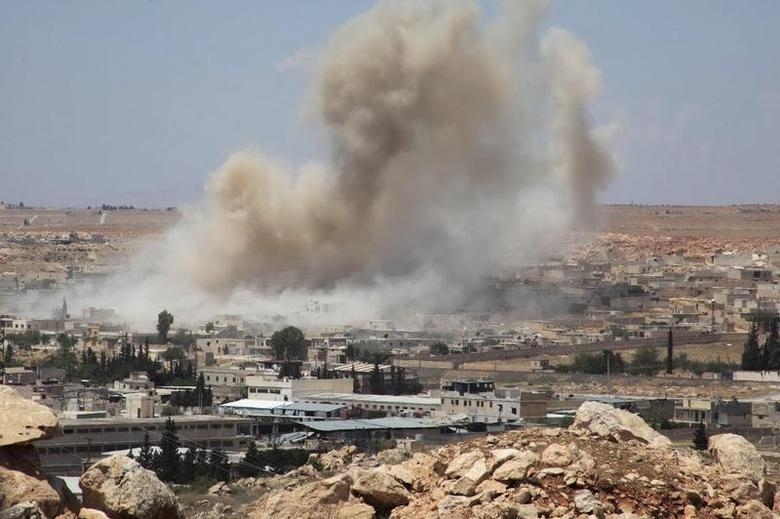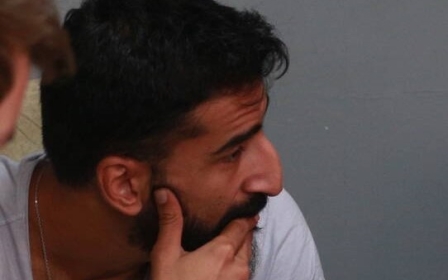Syria: Assad government crimes in Aleppo revealed in new leaks by defector

A military defector from the government has revealed the horrors inflicted on captives at one of the most notorious detention facilities in Syria, the Aleppo central prison.
The documents sent to the opposition-linked Zaman Al-Wasl media outlet include photos of prisoners being assaulted, abused, tortured and killed.
A similar revelation in August 2013 by a military defector code-named Caesar smuggled 53,275 photographs out of Syria, which showed at least 6,786 detainees who died in detention.
The latest leaks, smaller in volume, are being called a second Caesar moment, revealing that up to 800 civilians may have been killed in the Aleppo central prison complex.
New MEE newsletter: Jerusalem Dispatch
Sign up to get the latest insights and analysis on Israel-Palestine, alongside Turkey Unpacked and other MEE newsletters
The revelations have been confirmed by a non-commissioned officer and a former prisoner who witnessed widespread torture and massacres at the facility.
The non-commissioned officer, nicknamed Abu Ahmed, would write reports about the dead bodies and, alongside a forensic doctor, would attribute their deaths to terrorist groups.
"This is probably the tip of the iceberg," said Zaher Sahloul, a member of the American Coalition for Syria, following the latest revelations.
"There are more than 110,000 Syrians, according to human rights organisations, who disappeared in the regime prisons."
'Without accountability and justice for the victims and their families, it is impossible to turn the page and move on'
- Zaher Sahloul, American Coalition for Syria
Aleppo's central prison on the north-eastern outskirts of the city was the site of a pivotal battle between government forces and several armed opposition groups from March 2013 until May 2014.
During the year-long siege, the facility was also turned into a military base, with inmates facing dire conditions and degrading treatment at the hands of prison guards and military officers.
"Unfortunately, the world is reaching the painful conclusion that many, if not all, of them have been terminated extrajudicially in barbaric ways," said Sahloul.
"These revelations keep the Syrian cause alive and remind the countries and organisations that are rushing, without any clear reason, to normalise relations with the regime of the moral depravity of the regime and its crimes against humanity."
According to the latest leaks, the deaths of prisoners were canon fodder for the Assad government to showcase that the opposition was massacring prisoners in a bid to muddy the information landscape.
When the Assad government, backed by forces from the Lebanese Hezbollah group, broke the siege of the Aleppo central prison complex, it also proved to be a bellwether of the future trajectory of the war.
Abu Ahmed also revealed that some of the first massacres were committed in prison during this period.
The leaks also lift a lid on one of a number of Syria's dark chapters that has seen thousands disappear in the government's military and intelligence complexes, never to re-appear again.
Following a rebellion inside the prison, Abu Ahmed named several government officers who killed prisoners in cold blood.
The government officers would divert food meant for captives to the army, leaving prisoners malnourished or starving, said the defector.
The testimony of the latest leaks also gives a snapshot into the paranoid mindset of the government at the time. Prison authorities feared that the captives would find out what was happening in the rest of the country and resorted to blocking access to television channels leaving only those supportive of the government.
Evidence for a future trial
When the military defector code-named Caesar revealed thousands of photographs documenting torture and death, it was used in a trial in Germany against a former government official.
In June 2018, the German Federal Court of Justice issued an arrest warrant against Jamil Hassan, who was heading the Syrian air force intelligence service until 2019, based on those files.
In 2021 a court in Germany sentenced a former Syrian government official to four and a half years in prison over complicity in crimes against humanity in his home country in a landmark verdict.
Eyad al-Gharib was accused of involvement in the crackdown against anti-government demonstrators in 2011, rounding up protesters in the Syrian city of Douma and delivering them to a detention centre where they were subjected to torture.
The trial also marked the first time that images from the Caesar files - 50,000 images taken by a Syrian military police defector - were presented to a court of law.
"Without accountability and justice for the victims and their families, it is impossible to turn the page and move on," Sahloul told MEE.
Middle East Eye delivers independent and unrivalled coverage and analysis of the Middle East, North Africa and beyond. To learn more about republishing this content and the associated fees, please fill out this form. More about MEE can be found here.




